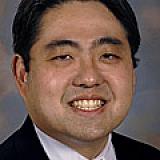
The Dr. Helmuth F. Orthner Endowed Professorship
Endowed Professorship
The Dr. Helmuth F. Orthner Endowed Professorship in the Department of Biomedical Informatics was established in memory of Helmuth F. Orthner, PhD, FACMI by his widow, Carolyn Orthner. This professorship is to promote excellence in teaching and research in Biomedical Informatics. This Endowment and Professorship are named in honor of Dr. Helmuth Orthner, recognizing his legacy as a beloved teacher, mentor, friend, and colleague. It is hoped his legacy will live on through the students who are recipients of this endowment and who follow his example of service in the broader informatics community.
Helmuth F. Orthner, PhD, FACMI
Helmuth (Helly) Franz Orthner was born in the small Alpine village of Silz, Austria in 1941, where he was raised by his maternal grandmother. He showed an early aptitude in math and science which he pursued at the Higher Technical Institute in Innsbruck, followed by the Technical University of Munich, where he earned a Masters Degree in Electrical Engineering and Communication Technology.
In the mid-1960s, Dr. Orthner became interested in a new educational discipline called Biomedical Engineering, which combined his love of engineering with the long Orthner family tradition of medicine. He immigrated to the US in 1967 after being offered a full graduate fellowship from the Biomedical Engineering Department at the University of Pennsylvania, a relatively new program and one of the first in the US. He earned his Ph.D. in Biomedical Engineering from Penn in 1973.
In 1972, at the invitation of his mentor and friend, Dr. William S. Yamamoto, Dr. Orthner joined the faculty of the Department of Clinical Engineering at the George Washington University (GWU) School of Medicine, where he rose through the ranks becoming Professor of Computer Medicine and Director of the Office of Academic Computer Services. It was during his early years at GWU that Dr. Orthner recognized a rising interest in the application of computers to medicine and health, and co-founded SCAMC (Symposium on Computer Applications in Medical Care). Through his vision and leadership, SCAMC evolved into the premier and largest annual congress of its kind in the US and was instrumental in fostering the development of the then-fledgling field of medical informatics. In 1988, SCAMC, Inc. was one of three organizations that merged to form the American Medical Informatics Association (AMIA). Dr. Orthner was a founding Board member of AMIA, a founding Fellow of the American College of Medical Informatics (ACMI) and continued to serve for several years on the AMIA Board of Directors and on various councils and committees.
In 1993, following a sabbatical with Dr. Homer Warner, Dr. Orthner became a Professor of Medical Informatics at the University of Utah Health Sciences Center. In 1998, he became Professor and Director of the Health Informatics Program at the University of Alabama at Birmingham (UAB). Dr. Orthner's more recent research involved developing a communication infrastructure for pre-hospital emergency medical care, which was funded by the National Library of Medicine (NLM) since 1998. Dr. Orthner was the Series Editor for the Springer Verlag-New York Series on "Computers and Medicine" for 10 years. He also served on NLM's Biomedical Library Review Committee, as well as various study sections reviewing grants and contracts for the National Institutes of Health. Dr. Orthner received several awards during his career, including the 2001 President’s Award from AMIA "in gratitude and acknowledgment for outstanding intellectual leadership and education vision to the field of medical informatics”. However, it was the accomplishments of his many students over the years that gave him the greatest pleasure and pride. Dr. Orthner retired from UAB at the end of 2008 and returned to Utah becoming an Adjunct Professor of Biomedical Informatics. He died in March 2009 of a sudden cardiac arrest on a flight to Washington, DC to serve on an NLM review committee. In that same year, the Helmuth F. Orthner Endowed Scholarship was established in honor of the commitment and service of this beloved teacher, mentor, colleague, and friend.

Recipients of Endowed Professorship
2025


You can help the Department of Biomedical Informatics continue to progress with even a small contribution.